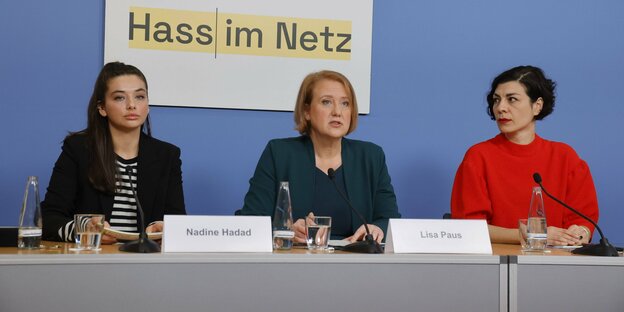The digital world should become safer. Since last summer, large platforms have been forced to take action against hate, and soon smaller ones too.

Nadine Hadad, Lisa Paus and Elena Kountidou on Tuesday in Berlin Photo: Metodi Popow/imago
Online hate is increasing. Younger women, queer people and people with recognizable immigration backgrounds are especially affected by digital violence and hate speech, according to a new representative study from the Internet Hate Competition Network. The findings are not surprising. To ensure the hostile environment on Instagram,
The consequences for those affected by digital violence must be taken seriously. In addition to psychological problems and social exclusion, those affected also withdraw from digital discourse and leave the stage to the haters. Both the studio's publishers HateAid and New German Media Makers and Federal Family Affairs Minister Lisa Paus, who was present, called on Tuesday for media literacy to be expanded in Germany to hold platform providers accountable. .
Given that most respondents go to the platforms' reporting offices first, this seems like a sensible step. There is a lot of hope for the future: the Digital Services Act, which also applies to small businesses at EU level from February 17, aims to make the digital world safer for its users. It is not even necessary to look into the future to prevent digital violence. The Digital Services Law has been in force for providers like Meta and Google since last August.
Among other things, it provides for the introduction of effective complaints procedures and greater prevention of hate speech against minorities or misinformation. Providers have long been required to take measures to prevent online hate. It is not necessary to wait for the next obligations, but you can now evaluate the existing measures of the suppliers and negotiate with Zuckerberg, Musk and company. The legal basis for this exists in the EU.